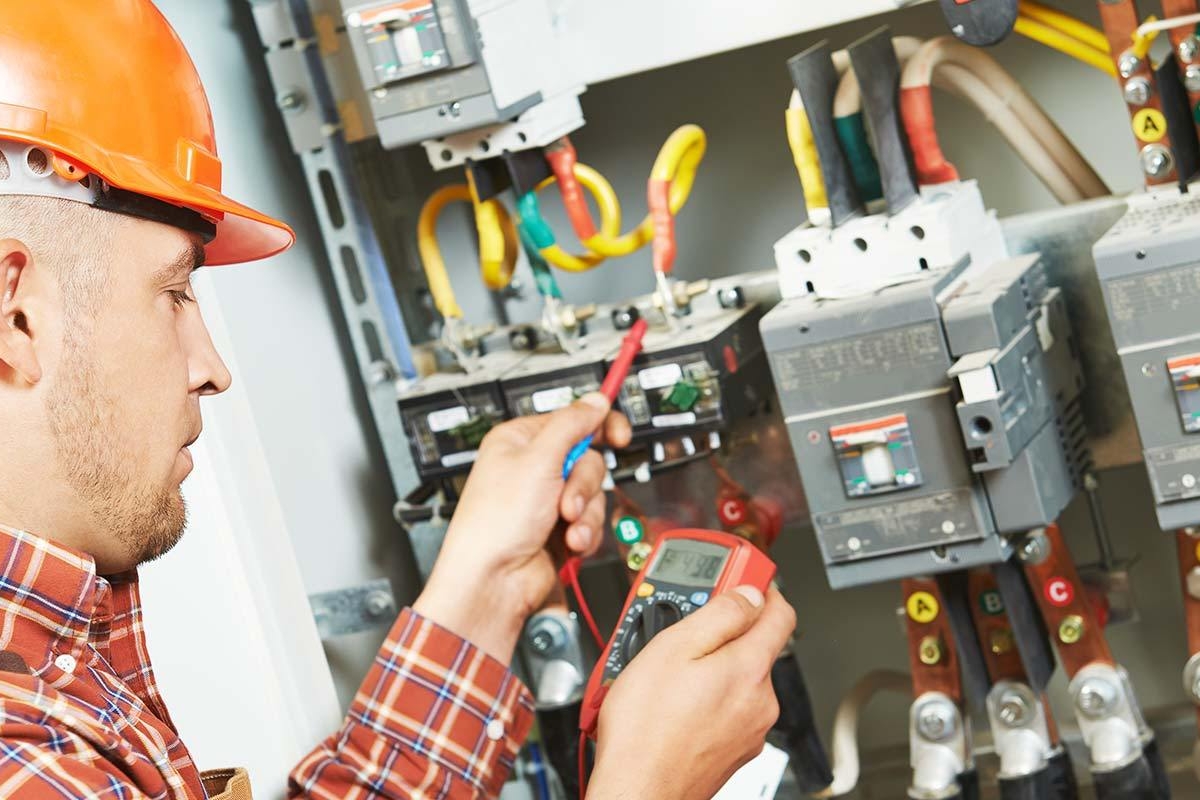
In a world increasingly dependent on technology, the role of electricians has never been more crucial. Often working behind the scenes, these skilled professionals ensure that our homes and workplaces are powered and functioning safely. However, the reality of their work is far more complicated and fascinating than most people realize. From navigating complex wiring systems to troubleshooting unexpected electrical failures, electricians face a myriad of challenges every day.
What many may not know is that the journey to becoming an electrician involves rigorous training and a deep understanding of both electrical systems and safety protocols. This profession is not just about installing outlets and fixing lights; it encompasses a broad range of responsibilities that require expertise and problem-solving skills. As we delve deeper into the hidden world of electricians, we will uncover the surprising truths about their work, the dangers they encounter, and the vital impact they have on our daily lives.
The Critical Role of Electricians
Electricians play an essential role in our daily lives, serving as the backbone of modern infrastructure. From residential homes to commercial buildings, their expertise ensures that our electrical systems are safe and functional. They are responsible for installing, maintaining, and repairing electrical wiring, circuits, and equipment, making their work crucial for both safety and convenience.
In addition to handling installations and repairs, electricians also play a vital role in energy efficiency and sustainability. With the growing emphasis on green technologies, they are increasingly involved in implementing energy-saving solutions such as LED lighting, smart electrical systems, and solar power installations. Their knowledge of the latest technologies allows them to provide services that not only enhance our living and working spaces but also contribute to reducing our carbon footprint.
Moreover, the work of electricians often goes unnoticed until something goes wrong. Their expertise in troubleshooting electrical problems means that they can quickly diagnose issues, ensuring that homes and businesses continue to operate smoothly. This ability to prevent downtime in critical systems highlights their importance in our communities, often allowing us to go about our daily lives without a second thought about the complex electrical systems that power them.
Common Myths About Electricians
One prevalent myth is that all electricians are simply interchangeable laborers without any specialized knowledge. In reality, electricians undergo extensive training and education to become licensed professionals. They must understand complex electrical codes, safety protocols, and the latest technology. This deep knowledge enables them to handle various tasks, from basic wiring upgrades to intricate commercial installations, demonstrating that electricians possess a unique set of skills.
Another misconception is that doing electrical work is something anyone can manage without professional help. While some minor tasks like changing a light bulb seem straightforward, many electrical jobs come with significant risks, including shock and fire hazards. Hiring a qualified electrician ensures that the work is done correctly and safely, adhering to local regulations. Attempting electrical repairs without proper knowledge can lead to costly mistakes and dangerous situations.
Finally, many people believe that electricians are only needed when something goes wrong. In truth, proactive maintenance and upgrades are just as crucial. Regular inspections by an electrician can identify potential issues before they become major problems. Additionally, electricians can help with energy efficiency improvements, such as installing smart home systems or upgrading outdated wiring, which can lead to lower energy bills and enhanced safety in homes and businesses.
The Hidden Dangers of the Job
Working as an electrician can be rewarding but it also comes with significant risks that are often underestimated. One of the most immediate dangers is electrical shock. Electricians frequently encounter high voltage systems, and a moment of distraction can lead to severe injury or even death. Proper safety protocols and equipment are essential, yet accidents can still occur, making this one of the most perilous aspects of the job.
In addition to the threat of electrical shock, electricians face physical hazards on a daily basis. They often work in confined spaces, on ladders, or at great heights, which can result in falls. The risk of dropping tools or equipment can also lead to injuries for both the electrician and those nearby. Each work environment presents unique challenges, and maintaining safety while navigating these conditions is crucial for their well-being.
Moreover, the mental stress associated with being an electrician should not be overlooked. The responsibility of ensuring that wiring and electrical systems are safe is immense, and the stakes can be high. A mistake can have severe consequences, not only for the electrician but also for their clients and the public. This pressure can lead to burnout and mental health issues, highlighting another hidden danger in this demanding profession.
Technological Advancements in Electrical Work
The field of electrical work has undergone significant transformation thanks to technological advancements. Electricians now have access to a plethora of new tools and equipment that enhance both efficiency and safety on the job. For instance, modern multimeters and clamp meters provide more accurate readings and easier diagnostics. This technological evolution not only helps in troubleshooting but also allows electricians to complete tasks more promptly, ultimately saving time and cost for both professionals and their clients.
Additionally, the rise of smart technology has revolutionized how electricians approach their work. With the advent of smart homes, professionals are required to integrate complex systems that control lighting, heating, and even security through central hubs or mobile devices. Electricians are now being trained to not only install wiring but also to understand the intricacies of automated systems and Internet of Things devices. This shift represents a significant expansion of their skill set and an exciting opportunity to stay ahead in an evolving market.
Electrician In New Jersey
Furthermore, the integration of augmented reality and virtual reality tools is beginning to shape training and on-field practices for electricians. These technologies provide immersive learning experiences that allow apprentices to simulate electrical installations or repairs safely before working in real-life settings. By utilizing these advanced training tools, the industry can cultivate a new generation of electricians who are better prepared and equipped to tackle both traditional and emerging challenges within the electrical landscape.
The Future of the Electrician Profession
The electrician profession is poised for significant transformation in the coming years. With the increasing reliance on renewable energy sources, electricians will play a crucial role in integrating solar panels, wind turbines, and energy storage systems into existing infrastructures. These advancements demand not only traditional electrical skills but also an understanding of new technologies and efficient energy management systems. Therefore, electricians must adapt and continually update their training to stay relevant in a rapidly evolving industry.
Moreover, the rise of smart home technologies is reshaping the electrician’s responsibilities. As homes become more interconnected, electricians will need to install and maintain advanced systems that facilitate automation, security, and energy efficiency. This trend towards smart technology presents exciting opportunities for electricians to diversify their skill sets and offer specialized services. The demand for expertise in these areas is set to grow, creating a need for professionals who can navigate both conventional and cutting-edge electrical systems.
Lastly, sustainability will drive the future of the electrician profession. As society becomes more aware of environmental concerns, electricians will be essential in promoting energy-efficient solutions. This shift will likely lead to an increase in regulations and standards favoring eco-friendly practices. Electricians who embrace sustainable techniques will not only enhance their marketability but also contribute positively to the environment. Emphasizing green energy solutions, the profession will evolve, finding new pathways that align with global sustainability goals.
